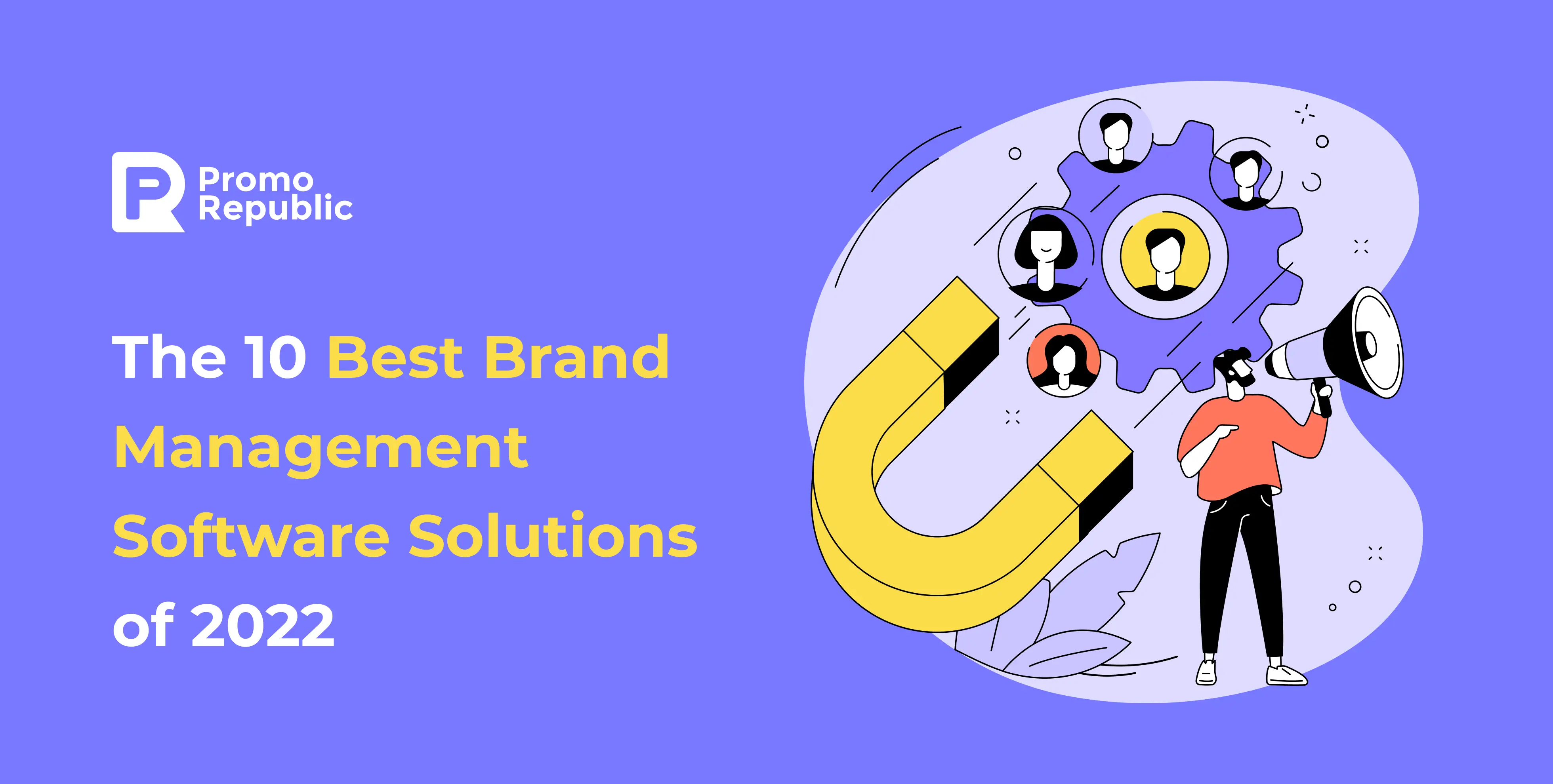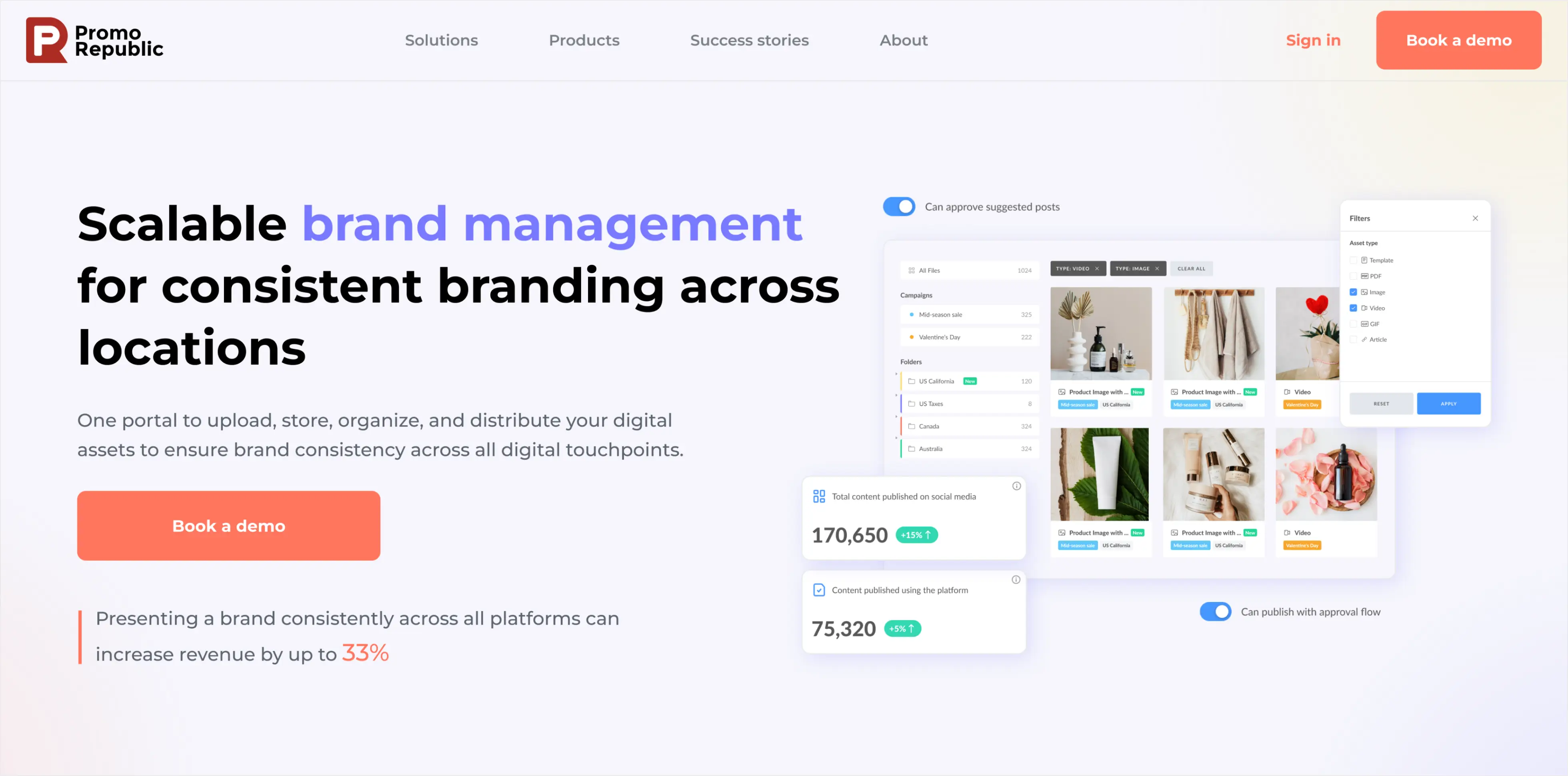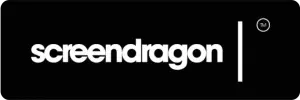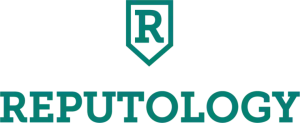The 10 Best Brand Management Software Solutions of 2022

According to a Forbes report, consistent branding across all communication channels ensures revenue growth of up to 23%. When customers see the same colors, font, and messages wherever they meet your brand over and over again, they recognize it, thus becoming more aware of it. With this in mind, managing your brand is not a matter of ‘why’, it’s a matter of ‘how’.
By ensuring brand consistency at every touch point, you’ll be able to raise brand awareness among your customers and therefore generate more sales and consequently grow your revenue. Managing your brand both locally and globally can be challenging unless you use brand management software. With the right tools, you’ll be able to keep all brand assets and messaging centralized and make your brand as recognizable as Coca-Cola or Nike.
Brand management software is software designed for businesses to help them maintain marketing standards and keep control of their brand by creating a single storage and management source. It helps companies build, organize, evolve, and distribute their brand guidelines among all employees involved in brand promotion.
Brand management platforms enable business owners to design, deliver, and regulate the desired perception of their brand as well as to ensure the consistent usage of brand assets among the entire organization.
Let’s see what features such software typically offers:
- Brand management
- Data analytics
- Data export/import
- File sharing
- Marketing automation
- Document comparison
- Social media monitoring
- Ready-to-use templates
- Content planning and scheduling
- and a lot more.
It should be mentioned that each brand management tool has its own strengths and weaknesses. Some platforms are more universal, and some are tailored to focus on a particular task, e.g. local brand management. When choosing what suits you best, rely on your business goals.
Eager to meet the top 10 brand management solutions to strengthen customer perception? Read on.
What Is the Best Brand Management Software This Year?
Let’s take a look at the most popular tools for brand management available in the market in 2022.
1. PromoRepublic – #1 brand management platform
PromoRepublic is one of the top platforms that allows businesses to easily and efficiently manage their brand across various locations and marketing channels. It helps you keep your content organized as well as provides a single point of access to brand assets for all authorized users.
With PromoRepublic’s brand management solution, you’ll be able to:
- Centralize your digital assets in one place;
- Set branding guidelines for a consistent visual brand image;
- Safeguard your brand with robust user-level permissions;
- Accelerate on-brand content creation and localize in one click with intuitive drag-and-drop Graphics Editor;
- Get insights into your assets usage and content performance.
As PromoRepubic is an all-in-one marketing solution, you’ll also be able to cover a wide range of other marketing tasks such as:
Social media marketing to easily manage customer communication and schedule posts on social networks.
Reputation management to track client feedback, mentions, and reviews.
Distributed marketing to share assets and templates with your local partners and choose what they can change.
Local SEO to manage listings and build citations for better findability and visibility.
Insight-driven marketing to gather data and discover growth opportunities.
and many more.
Pros
- Ease of use
- Detailed analytics – in bulk, or for each of the individual locations
- Pre-build templates
- Built-in graphics editor
Cons
- All features are only available in the multi-location pricing package
2. Brand24
Brand24 is a tool the goal of which is to help businesses enhance brand management. With this brand management software, companies can also learn about their customers better to improve communication with them and increase their involvement. The platform is suitable for any business. Social Media specialists or company managers can track brand development, analyze data, and user sentiment, and identify opinion leaders for the niche of interest. Marketing agencies get all the data they need to analyze a promotion strategy in one window.
Pros
- Strong analytics features
- Integration with Slack
- Customer support
Cons
- Difficult-to-use mobile version
- High cost
- Lack of in-depth sentiment analysis
3. Cision
Cision is a cloud-based reputation and brand management platform suitable for both online and offline media channels. It allows business owners to get the data in order to see whether they are reaching the right people, what they are saying, what actions they are doing, and hence establishing more effective marketing campaigns. Cision also offers a PR management tool to distribute press releases globally and get reports on them.
Pros
- Media contact database
- Integration with Google Analytics
- Media monitoring
- Press releases
- Reporting results
Cons
- Hard-to-use sorting features
- High price
- Difficult-to-format email campaign templates
4. Extensis Portfolio
Extensis Portfolio is a brand management tool that helps companies share their brand assets with partners and remote team members wherever they may be to ensure everyone is on the same page when it comes to brand consistency. It helps to improve customer relationships, enhance the overall digital and social media presence, and attract new customers.
The platform makes it easy to organize, access, protect, and share all media assets as well as increases efficiency by sending the right files to the right people and at the right time.
Pros
- Easily-searchable database
- Custom views
- Integration with Adobe CC
- Automated metadata injection
Cons
- Permissions issues
- Thumbnails for photos don’t load sometimes
- Difficult to learn to use the platform
5. Falcon.io
Falcon.io, which is now part of Brandwatch, is brand management software that allows businesses to ensure more personalized brand experiences. With Falcon.io, you can schedule and publish posts to various social media networks and manage all your social media accounts in a single place even if they are in different countries.
The tool also provides opportunities to learn about your customers better through solid social listening features and real-time sentiment analysis.
Pros
- A well-organized interface
- Strong listening module
- Cross-platform profiling
Cons
- The mobile app lacks features
- Slow customer support
- Low platform speed
6. Screendragon
Screendragon is a cloud-based solution for businesses that allows them to manage and grow their brands. With this tool, you can engage your team members and partners with content, community, and compliance capabilities from a single place and keep control over how your UX looks and feels. You can also provide the right people with the latest approved guidelines to achieve better brand governance.
Pros
Customizable approval workflows
Asset library
Online proofing
Advanced access permissions
Cons
Slow load times
Sometimes glitchy
7. Reputology
Reputology is a brand management platform that enables businesses to capture customer feedback and reviews to improve their campaigns. The tool offers a wide range of marketing tasks in one place — action management, sentiment analysis, survey management, analytics, and more. With Reputology, you’ll be able to adequately monitor your performance, identify and measure key performance indicators, and set quantifiable goals based on the obtained data.
Pros
- Ease of use
- The central hub of reviews
- Regular updates
- Customized dashboards
Cons
- No contract or contact management
8. Widen Collective
Widen Collective is a brand management tool that helps businesses simplify the process of content management and take control of their narrative with a single solution. It offers integrations with over 50 apps to power your content management needs. The software helps businesses to manage their marketing ideas and generate reports for each strategy.
Widen Collective lets you publish and distribute digital assets to more people in more ways such as social media, email marketing, websites, and more.
Pros
Custom metadata schema creation
Implementation support
Saved searches
Easy and attractive portals
Cons
No ability to change a file name once it is uploaded
No ability to mass upload assets with varying keywords
9. Chorus
Chorus is a part of ZoomInfo’s software that enables businesses to deeply understand how their brand is perceived through a set of smart features. You can identify changes in market dynamics to know where to focus their efforts, track which competitors, how, and at what stage win deals to help your team win more, and get insights from your customers to adjust campaigns and bring more leads.
Pros
Integration with Slack
Affordable pricing
Ability to share snippets of calls
Video/audio quality
Cons
Lack of smart analytics
Unclear setup structure
Not all data is available for research
10. Stackla
Stackla is a brand management tool that lets you manage, optimize, and publish user-generated content alongside your branded assets to ensure personalized experiences at every touchpoint. Stackla puts client stories at the heart of a company’s brand marketing efforts. The platform is primarily designed for mid-sized and large businesses.
Pros
Ease of use
Customizable widgets
Cross-platform posting
Solid integration support
Cons
Content curation may be challenging
Lack of detailed analytics
High cost
The Bottom Line
Brand management is critical for your business no matter its size or industry. By managing your brand effectively, you’ll get the opportunity to ensure that all the aspects of your brand are aligned. This will make the customer feel at ease and clearly understand what to expect when they experience your brand. They will also build more brand awareness and recognize it across various channels.
Once you focus your efforts, time, and money on brand management, you’ll be able to reach the following benefits:
- Better brand awareness
- Stronger customer loyalty
- Better brand recognition
- More credibility
- Stronger market position
- Increased sales opportunities
- Higher revenue
To manage your brand effectively, you need a reliable brand management software solution that will save you time, help you centralize all your brand assets, approve them, and let authorized employees access them to ensure consistency across all channels to make customers recognize your brand once they meet it.
Rely on our list of top tools for brand management and choose the one that best fits your business. Integrate the chosen platform into your workflow and start reaping the rewards of implementing a solid brand management process.
Frequently Asked Questions (FAQ) about Brand Management Software
How does brand management software work?
Brand management software lets you create, store, organize, and share brand assets with authorized team members, partners, and clients to strengthen your brand, protect it, and make it more recognizable.
What is the best brand management software to start with?
We recommend that you start with PromoRepublic as it is extremely easy to use while offering all the necessary features to manage your brand across various locations and channels. PromoRepublic is a one-stop-shop for improving your local and global online presence, managing your reputation, and enhancing your findability and visibility.
How to choose the best brand management software?
Each brand management tool has its own strengths and weaknesses. Some platforms are more universal, and some are tailored to focus on a particular task, e.g. brand management for established franchise brands. When choosing what suits you best, rely on your business goals, priorities, and marketing tasks you want to accomplish.

local marketing tips monthly
Enterprise: for multi-location and direct selling brands. Manage thousands of social media pages of your local distributors, partners, or franchisees.
Agency: for marketing agencies. Manage all your clients’ social media pages on one platform.


















